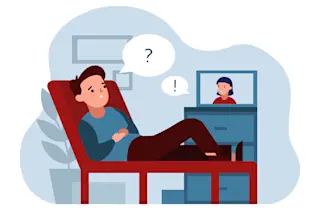When you think of therapy, what comes to mind? Maybe you imagine reclining on a leather chair while a psychologist scribbles on a notepad. Now imagine this: You’re curled up on your own couch in pajamas, perhaps with unbrushed hair, and sharing your problems via text with your virtual therapist.
Apps like BetterHelp and Talkspace make this all possible: You can communicate with their counselors via texts, emails or calls. In fact, the pandemic has made online therapy even more appealing. But with an increased cry for digital help comes the responsibility to provide it with proper mental health care and support. Can virtual therapy prove to be as effective as face-to-face treatment?
Providing mental health care from a distance dates back to the father of psychology himself. (No, Sigmund Freud didn’t text his patients.) But he did use letter-writing to treat his clients. With the current pandemic, however, mental ...















